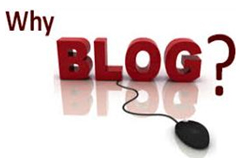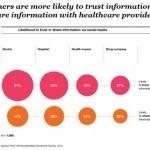Why Should a Breast Cancer Surgeon Blog?

As an experienced breast cancer surgeon, I have a wealth of knowledge and expertise and keep up to date with all the current research developments in my field. Why not share that knowledge with a wider audience? A doctor’s job after all is to share their expertise and to help patients execute their advice. As those searching for health information are increasingly looking to the internet and social media channels, it makes common sense to go where the patients are, or “fish where the fish are biting”.
I am however, a digital immigrant, not a digital native. The term digital native is based upon the assumption that people born in 1990 or later are purely digital. These natives were born into an innate “new culture”, while the digital immigrants are old-world settlers, who have lived in the analogue age and immigrated to the digital world. Digital natives process information differently to their predecessors; 97% use mobile phones to text message, 63% read blogs every day, and you’ll find 92% of them on Facebook.
Healthcare has historically been dominated by trust in the competence and independence of information obtained by the patient from various sources, primarily health care professionals, but the internet is increasingly becoming the first source for general and specific health information. A 2010 Price Waterhouse Coopers (PWC) (1) survey of 3,500 consumers in seven countries found that more people turn to the internet (48%) to find information to make decisions about their healthcare than to their doctors (43%).
Although not necessarily total Luddites, we immigrants struggle more than natives to adapt to hi-tech progress. We realize that technology is part of today’s world, and try to engage with it, but it often feels alien and unintuitive. Up until very recently I held the commonly voiced opinion that social media was “for people under 25” and for “posting photos of what you ate for lunch”
So what has changed for me? I thought I needed to “get with the programme”, and enrolled in a social media workshop for doctors (https://somebythesea.wordpress.com) followed up by a lot of reading on the topic. I am still very much a novice, but I now acknowledge and readily accept that healthcare professionals like myself, who are not digital natives, need to become fluent in the ways in which social media have the potential to impact and improve their professions and the lives of their patients. Patients who want to understand the decisions being made in their treatment will continue to turn to social media sources for health care information, requiring us to embrace the use of social media as a platform of communication and education among both patients and physicians.
I thought to start with, that I would dip my toe cautiously into the social media waters with a blog. I see blogging (and the dissemination of a blog via social media channels such as Facebook and Twitter) as a great potential opportunity to share my expertise in the field of breast cancer with a broader audience in a virtual environment, and to disseminate credible, accurate and evidence based information to patients, peers and the general public.
The internet can overwhelm people with health information and a lot of the information comes in the form of highly edited and often oversimplified material produced by medical organizations, pseudo-science from companies wishing to sell products or anecdotal stories from patient forums. Studies suggest that patients still consider medical professionals to be the most important source of health information, yet when Kovic (2008) (2) analyzed the medical blogosphere it was found that only 35% of medical bloggers were doctors. Patient generally trust clinicians and the broad reach of social media puts healthcare professionals in a prime position to drive healthcare related topics on the web. According to a 2012 Health Industries Group/PwC study (3) consumers overall have a higher level of trust in online health information that is shared by a doctor (61%), than by other sections of the health industry (see below)

It seems that what patients really want to read, is what their doctor says. They trust what we say.
And that is why I am writing a blog.
- PwC Health Research Institute, “Healthcast: The customization of diagnosis, care and cure,” 2010.
- Kovic I et al. Examining the Medical Blogosphere: An Online Survey of Medical Bloggers. J Med Internet Res 2008;10(3):e28
- www.pwc.com/us/en/health-industries/publications/health-care-social-media.jhtml











